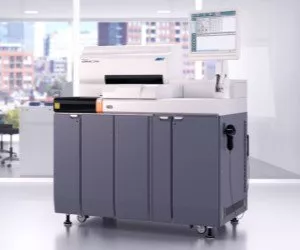The US Food and Drug Administration (FDA) has approved a new test for Alzheimer's disease. The test is the first in vitro diagnostic tool for Alzheimer's disease approved for use in the United States It is reported that the tool makes diagnosis by measuring the level of amyloid protein in spinal fluid.

Doctors and patients currently have few tools to diagnose Alzheimer's disease. In addition to cognitive and psychological tests, the only way to diagnose and detect Alzheimer's disease is positron emission tomography (PET). These scans can measure levels of destructive amyloid and tau proteins in the brain, but they are expensive and unavailable to many patients.

This new tool, called lumipulse test, can effectively detect the level of amyloid aggregation in the brain by looking for two specific amyloid proteins in cerebrospinal fluid. A clinical trial testing lumipulse for PET scan results found that it had 97% accuracy in picking out patients with brain amyloid accumulation.
Researcher William Hu, who developed the test, said: "if we want to make real progress on this terrible disease, we can use biomarkers found in cerebrospinal fluid or other body fluids to develop accurate ad (Alzheimer's disease) Testing is a requirement. The importance of early diagnosis for AD has been widely recognized, but until now, there is no approved biomarker test available for clinicians and patients. "
The lumipulse test is certainly not a simple test. The procedure for collecting spinal fluid samples is not as simple as a blood test. However, the new test will enable more patients across the United States to greatly obtain amyloid measurements.
An FDA statement said the test is only applicable to adults over the age of 55 with Alzheimer's disease who are being evaluated by doctors. The test cannot be used as a general screening or diagnostic tool, but can help doctors rule out early-onset Alzheimer's disease in patients with neurological problems.
Jeff Shuren, director of equipment and radiological health at the FDA, said: "The emergence of an in vitro diagnostic test has the potential to eliminate the need for time-consuming and expensive PET scans, which is good news for individuals and families concerned about the possibility of diagnosing Alzheimer's disease. With lumipulse test, there is a new option, which can usually be completed on the same day, which can provide doctors with the same information about brain amyloid status - without radiation risk - to help identify patients with cognitive impairment Is it caused by Alzheimer's disease? "